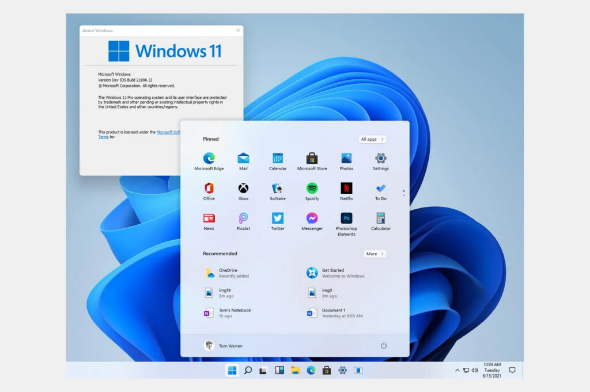Connection to DriversCloudCreate a DriversCloud.com accountReset your DriversCloud.com passwordAccount migration
Windows 11: a faster and more efficient OS than its illustrious predecessor?
Scheduled for release on October 5, Windows 11 is finally starting to be talked about for more than just its looks.
Since Microsoft's announcement on June 24 that Windows 11 was to be made official, there has been a lot of talk about changes that some people consider "purely cosmetic". It's true that there was a lot of talk about graphic redesign, a streamlined interface, fluent design and rounded edges. Microsoft even went so far as to mention simple reorganizations of relatively innocuous menus, the change of certain icons and the integration of a whole battery of new wallpapers. You'll agree, we've seen a more revolutionary approach.
With less than a month to go before the release of the new operating system, Microsoft seems to be coming out of its slumber... unless it was just a communication technique. However, as Windows Latest points out, Steve Dispensa, the vice president of Microsoft's Enterprise Management division, has recently been at the heart of a video that has been broadcast on Youtube to communicate on the optimizations and "technical" improvements made by the development teams.
First of all, we note that the developers have done a lot of work in managing the memory subsystem. The aim here is to give priority to the application running in the foreground in the most efficient way possible. However, this optimization should not penalize the launch of new applications, which must be operational very quickly. A "priority" system that Microsoft has also applied to its Edge browser. Thus, after a certain period of inactivity, unused tabs are put on "standby". Overall, Microsoft mentions an OS that requires 37% less processor resources and 32% less RAM. To stay with the numbers, Microsoft claims a 25% faster exit from standby than on Windows 10.
This "accelerated" exit from standby is the result of optimization work in the management of SSDs and Bluetooth / Wi-Fi modules and, more globally, the startup of the system itself would be accelerated ... at least in certain circumstances. Microsoft mentions here the authentication by Windows Hello which would be about 30% faster on Windows 11 compared to its ancestor. Amusingly, Microsoft also praises an optimization work to make Windows 11 occupy less space on the disk than Windows 10: better compression techniques are implemented.
Finally, Microsoft insists on the "security" aspect of its operating system, which will only be available in 64-bit version. However, this should not prevent Windows 10 applications, but also up to Windows 7 applications to run smoothly. Microsoft emphasizes that the Zero Trust model must offer a fully secure environment whether it is the various components of the system or the entire process of connecting the user.





